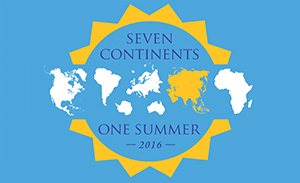Postcards from Poland
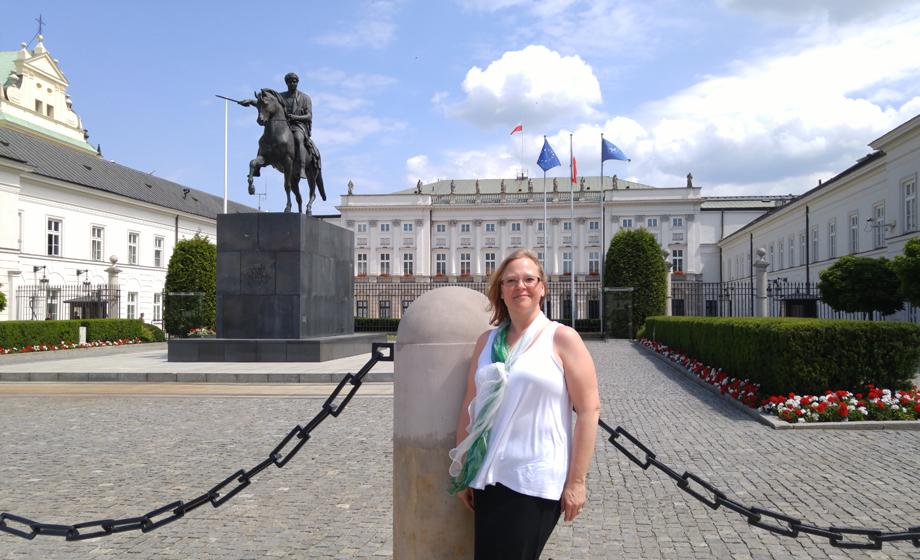
By Amy Daly Gardner
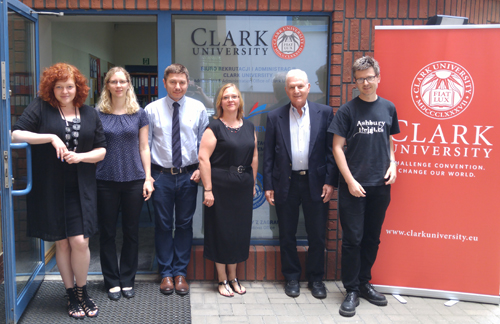
Show of hands: How many of you know that Clark University has a campus in Łódź (pronounced “woodge”), Poland? And one in Warsaw, Poland’s capital? We have one in Russia too, and close working relationships with universities in China.
With so many great things happening on Clark’s campus here in Worcester, it’s easy to forget that we have long-standing partnerships with these universities (we’ve been in Łódź since 2004, for instance) — and that the students who attend classes on those campuses have many of the same characteristics as our students here at home.
In my role as associate dean for international programs at Clark’s School of Professional Studies, formerly known as COPACE, I travel regularly to these campuses, including a trip earlier this month to Poland, so I can meet with administrators, faculty and current and prospective graduate students. One of my official duties was to judge students’ capstone presentations, which were really wonderful.
I’m heading back in September to be part of the Commencement ceremony, when about 120 international students will be receiving their Clark master of science in professional communication (M.S.P.C.) degree at the Warsaw campus of Społezcna Akademia Nauk (University of Social Sciences). If it’s like the previous Commencement ceremonies I’ve attended there, it’s a great experience marked by lots of pomp and circumstance.
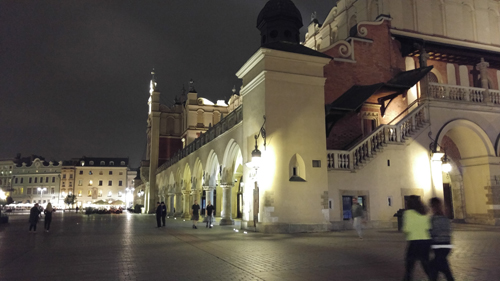
And even though they may never set foot in the United States, these students in Poland are OUR students, and we encourage them to identify as such. During the academic year, they study with faculty from their Polish university, many of whom have taught or studied in the United States. Summer courses are led by Clark faculty who travel to Poland for the purpose. With all classes being taught in English, many students from countries other than Poland are attracted to the program. Students have the opportunity to spend one or two semesters studying in Worcester, but are not required to do so.
The M.S.P.C. program brings a uniquely American and Clark approach to the curriculum. I’ve asked students why they chose the program — after all, it’s more money and more work. What I kept hearing was that our emphasis on putting theory into practice was something they don’t get in Poland, but is so much a part of our DNA.
In addition, they say they like that we teach them intercultural communication. Each year, along with the University of Social Sciences, Clark sponsors the Intercultural Management Congress, a venue for comparing and contrasting different views on the theory and practice of international management. Students like that they’re getting an international degree, which provides a leg up for those who want to work for organizations with international ties. At some point we’d like to provide opportunities for Worcester campus M.S.P.C. students to take a semester or two at a Polish campus, and for some of the Polish faculty to teach in Worcester.
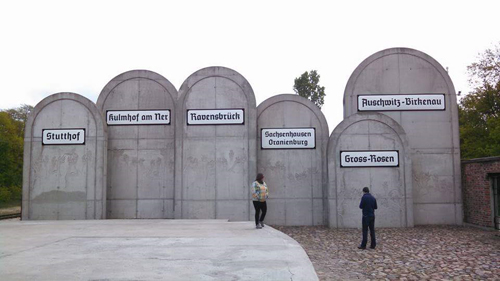
Beyond the educational opportunities, I’ve loved getting to know Poland from a cultural perspective. Having lived in the former Soviet Union for two years, I speak Russian, and although my facility with Polish is pretty much limited to reading, I don’t have a problem getting around. In fact, Łódź reminds me a lot of Worcester — both were old industrial cities that were decaying, but now are making comebacks. I actually stayed at an old textile mill that has been converted into an upscale hotel — Andel’s by Vienna House. It also has great restaurants (check out Galicja’s menu in English) and is the film capital of Poland with an internationally known film school. Unfortunately, Łódź was also the site of a large Jewish ghetto during World War II. Last year I visited the Radegast train station, the last stop on the trip to Auschwitz. Poland has never forgotten this tragic part of its history, and aims to educate its people through museums and memorials.
Often when I talk about Clark’s campuses abroad, I’m asked why we would spend the time, energy and money on a venture like this, and I tell them that it makes sense given who we are as an organization and what we stand for.
This story is part of our 7 Continents, 1 Summer series, which highlights the interesting work that Clark students, faculty, alumni and staff are doing all over the world. Have a great story of your own to share? Let us know and we’ll be in touch.
Clark has had a long-standing reputation internationally: Our students, faculty and staff travel the globe to study, participate in collaborative research and attract the best and the brightest students and faculty to our campus in Worcester. While many higher education institutions in the U.S. are engaging with partners overseas, a program like Clark’s is rare because it requires a serious commitment from both Clark and our partner institutions. Strong relationship-building and leadership skills are required to “marry” the academic needs and standards of both institutions. Clark must comply with accreditation standards in the U.S. and in Poland, while accommodating cultural differences.
These are challenging things to do, but I believe they’re worth it. The program provides a U.S. university degree to the many students who can’t come to this country for an entire degree. Those able to visit the Worcester campus for one or two of their semesters have contributed greatly to the classroom experience of domestic students. The international students come from different backgrounds and welcome the opportunity to share their life experiences and learn from their American peers. They return to Poland or other home countries and serve as ambassadors for Clark and the United States. To me, it’s another example of Clark challenging convention in an effort to change the world and I’m thrilled to have the opportunity to live that part of our mission every day, from Worcester to Łódź.
Amy Daly Gardner is associate dean for international programs for Clark’s School of Professional Studies.

